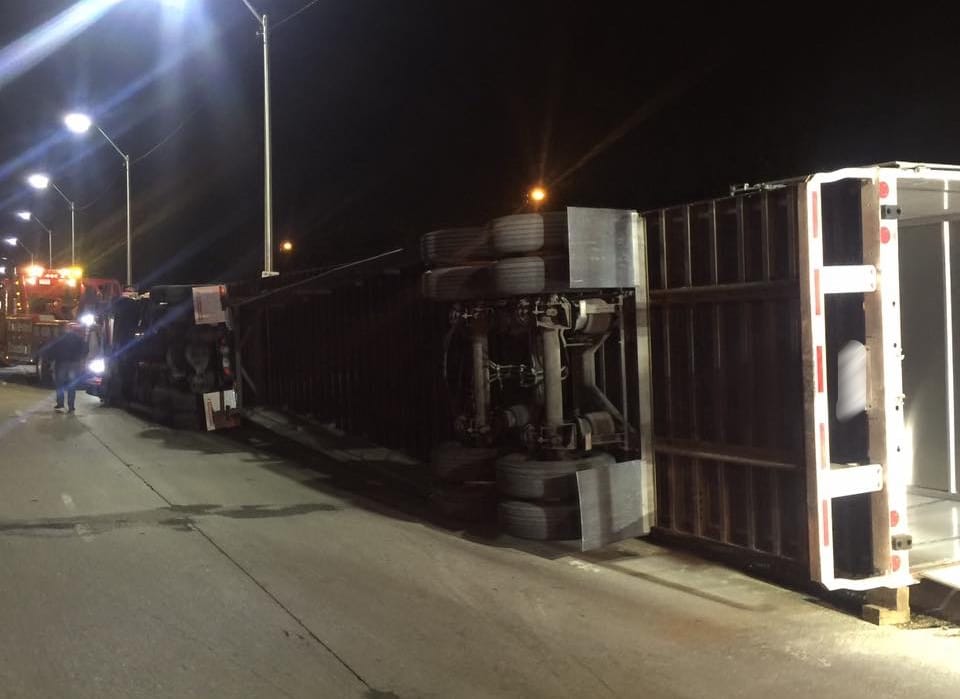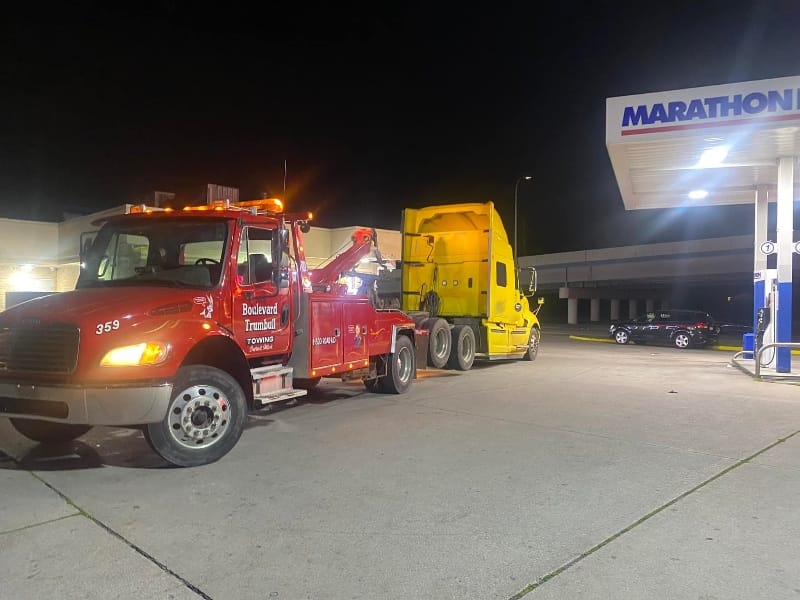Towing Our Way Through the Dark
Ever tried changing a tire by flashlight on a shoulder with cars flying past at 70 mph? That’s the kind of tension we feel during late-night recovery calls. We handle Detroit emergency towing around the clock, but there’s something about the night runs that changes the game entirely. When the sun sets, the risks climb, the noise fades, and the job transforms.

We Can’t See What We Can’t See
Darkness swallows detail. It hides potholes, glass shards, leaking fluids, and dropped parts. A scene that’s easy to assess during daylight becomes an exercise in educated guesswork after midnight.
Our crews know how to light up a scene quickly. We set up perimeters with portable towers, wear high-vis gear that practically glows, and keep extra batteries for everything. But it still takes longer, and the margin for error shrinks. That’s why every Detroit emergency towing call at night demands more care, more equipment, and sharper focus.
Fatigue Changes the Way Everyone Drives
There’s a reason overnight shifts hit different. Fatigue creeps in fast when you’re working back-to-back night calls. But it’s not just us out there. Tired drivers make poor decisions. Some weave. Some overcorrect. Some see us last minute. That’s why we always position our rigs with a buffer between oncoming traffic and the scene. And why we never step onto the road without scanning twice.
A Detroit emergency towing job at 2 a.m. comes with risks you won’t find at noon. We’ve seen everything from near misses to full-blown accidents caused by drowsy drivers who never slowed down for the cones. That’s why we treat every night shift like a hazard zone.
The Traffic’s Not Lighter Just Louder
At night, every engine echoes louder. You feel each semi whoosh by in your chest. The absence of background noise makes every passing vehicle more pronounced and more dangerous.
During a daytime Detroit emergency towing job, we might deal with congestion. But at night, it’s speeders, distracted drivers, and people who aren’t expecting to see us. That unpredictability makes it one of the most dangerous parts of our work.
We never assume someone sees us. Instead, we assume they don’t. That’s why our night protocols include double-layered flares, additional reflectors, and multiple vehicles when needed. We’ve learned that visibility can’t just be good, it has to be unmistakable.
When the Phone Rings at Midnight, We Move Fast
There’s no such thing as a convenient breakdown, but getting stuck at night takes stress to another level. People panic. Phones die. Landmarks disappear in the dark.
We respond quickly, but more than that, we stay on the line until help arrives. We don’t just send trucks but also guide people through the moment. Every Detroit emergency towing call includes a conversation, a plan, and a reminder that they’re not alone in the dark.
- Here’s what we always bring on a night call:
- Scene lighting to brighten the work area
- Reflective and lighted personal safety gear
- Backup radios and headlamps
- Vehicle barricades and warning flares
- A second operator for high-risk locations

Boulevard & Trumbull Towing: Let Us Handle Your Detroit Emergency Towing Job
Every Detroit emergency towing job we take after sunset teaches us something new. We learn how to be clearer in our communication, quicker in our setups, and better at watching each other’s backs. There’s a kind of trust that only grows under hazard lights at 3 a.m.
So, when the next call comes in and it’s pitch-black outside, our Detroit emergency towing team isn’t worried. We’re wired, ready, and already halfway out the door. That’s what night towing demands and what we’ve trained ourselves to deliver.
